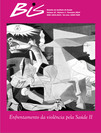Abstract
This essay thinks of the quality of health care in the population that demonstrates ways of experiencing sexuality and existential ways in the diverse genre from heteronormative assumption, as well as variables of this quality in care. Apart from the lack of information and professional training on this population and its specificities in health care and their invisibility in everyday social life as contributing to the poor quality of care, we have ways of subjective allocation as an element of variation in the same quality. The positive allocation, towards meeting-touch-with the odd experience, creates the possibility of building positive feelings and positions on the multiplicity in various aspects of its rules of sex, gender, desire and practice. This same allocation that enables the recognition of the human in the wierd, expanding margins of human category.
References
2. Butler J. Bodies that matter: on the discursive limits of “sex”. London: Routledge; 1993.
3. Butler J. Corpos que pesam: sobre os limites discursivos do “sexo”. In: Louro, GL, organizadora. O corpo educado: pedagogias da sexualidade. Silva TT, tradutor. Belo Horizonte: Autêntica; 2000. p. 151-172.
4. Castañeda M. A experiência homossexual: explicações e conselhos para os homossexuais, suas famílias e seus terapeuta. Hervot B, Teixeira-Filho FS, tradutores. São Paulo: A Girafa; 2007.
5. Deleuze G, Guattari, F. Mil platôs: capitalismo e esquizofrenia, 4. Rolnik S, tradutor. São Paulo: Ed. 54; 1997.
6. Forst DM, Meyer IH. Internalized homophobia and relationship quality among lesbians, gay men, and bisexuals. J Counseling Psychol. 2009;56 (1):97-109.
7. Foucault M. Microfísica do poder. 2. ed. Rio de Janeiro: Graal; 1979.
8. Foucault M. A verdade e as formas jurídicas. 2. ed. Rio de Janeiro: Nau; 1999.
9. Guattary F, Rolnik S. Micropolítica: cartografias do desejo. Petrópolis, RJ: Vozes; 1996.
10. Haraway DJ, Azerêdo SMM. Companhias multiespécies nas naturezaculturas: uma conversa entre Donna Haraway e Sandra Azerêdo. In: Maciel ME, organizadora. Pensar/escrever o animal: ensaios de zoopoética e biopolítica. Florianópolis: UFSC; 2011. p.389-417.
11. López JJO. Víctimas de la homofobia: consecuencias psicológicas [monografia na internet]. Castellon: Associación Cristiana de Gais i Lesbianes de Catalunya; s.d [acesso em 12. fev. 2011]. Disponível em: http://www.acgil.org/documents/246_documents_ Victimasdelahomofobia,JorgeOsma.pdf.
12. Merleau Ponty, M. Fenomenologia da percepção. São Paulo: Martins Fontes; 1994.
13. Natividade M, Oliveira L. Sexualidades ameaçadoras: religião e homofobia(s) em discursos evangélicos conservadores. Sexualidad, Salud y Sociedad - Revista Latinoamericana. 2009;2:121-161.
14. Peres WS. Subjetividade das travestis brasileiras: da vulnerabilidade da estigmatização à construção da cidadania. [tese de doutorado]. Rio de Janeiro: Instituto de Medicina Social da Universidade do Estado do Rio de Janeiro; 2005.
15. Sanders GL. O amor que ousa declarar seu nome: do segredo à revelação nas afiliações de gays e lésbicas. In: Imber-Black E, organizador. Os segredos na família e na terapia familiar. Batista D, tradutor. Porto Alegre: Artes Médicas; 1994. p.219-244.
16. Schulman S. Homofobia familiar: uma experiência em busca de reconhecimento Fernandes FBM, tradutor. Bagoas. 2010;5:67-78.
17. Teixeira-Filho FS, Rondini CA. Ideações e tentativas de suicídio em adolescentes com práticas sexuais hetero e homoeróticas. Saúde Soc [periódico na internet]. 2012 [acesso em 6 nov 2012];21(3):651-667. Disponível em: http://www.scielo.br/pdf/sausoc/v21n3/11.pdf.
18. Toledo LG. Será que eu to gostando de mulher?: tecnologias de normatização e exclusão da dissidência erótica feminina no interior paulista [tese de doutorado]. Assis-SP: Universidade Estadual Paulista; 2013.

This work is licensed under a Creative Commons Attribution 4.0 International License.
Copyright (c) 2022 Lívia Gonsalves Toledo
